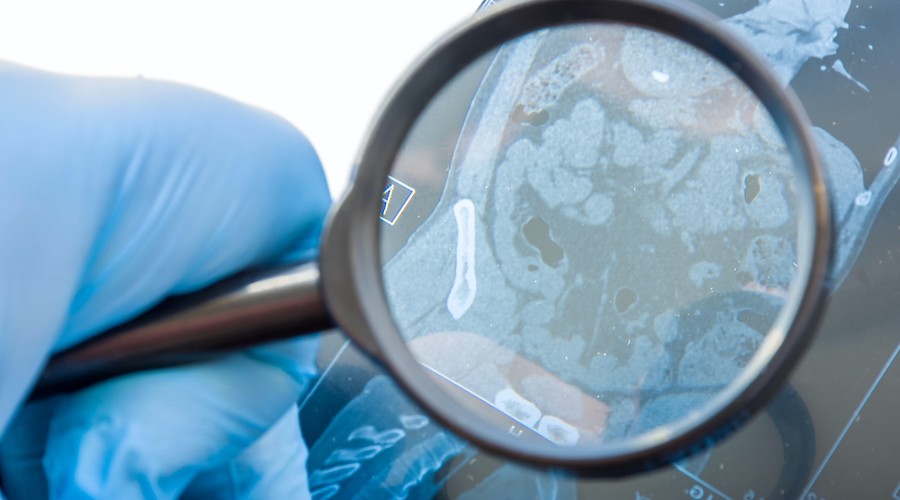Advances in Rare Disorders

Recognized researchers discuss new trends and technological innovations in the treatment of rare diseases.
A disorder is considered rare in the USA when it affects fewer than 200,000 people (or 1 in 2,000 in Europe). However, the scenario is of public concern if we consider the severity and the sheer number of these diseases. More than 6,000 rare disorders have been described affecting 300 million people around the world (30 million in Europe and 25 million in the USA), meaning that roughly one out of 15 people worldwide could suffer a rare disorder. Most of these diseases are chronic and life-threatening, and they present different challenges from those of more common diseases. The few patients that suffer from a rare disorder are usually scattered across countries, hampering the proper documentation of the natural history of the disease and patient management.
As a consequence, it takes an average of around five years to get a proper diagnosis, and 95% of rare disorders lack approved treatment. Besides, the impact on patients and families can be devastating, since 50% of the disorders affect children and 30% of them will die before the age of 5. The vast majority of rare diseases (80%) have a genetic component, and, therefore, the development of new drugs based on genetic information as well as gene and cell therapies is taking the lead on patient management. For this reason, and with the upcoming Rare Disease Day on February 29th, ECUSA would like to highlight the advances in cutting-edge treatments for these disorders.
The symposium will gather three researchers who are running the race towards a cure for these diseases.
About Luk H. Vandenberghe
Luk H. Vandenberghe, PhD, is the Grousbeck Family Associate Professor in Gene Therapy at Mass Eye and Ear and Harvard Medical School, Director of the Grousbeck Gene Therapy Center, and an Associate Member of the Broad Institute of Harvard and MIT in Boston, MA, USA. He received a degree in cellular and genetic engineering from the University of Leuven (Belgium) and subsequent training in several translational gene therapy laboratories at the University of Pennsylvania. His previous work led to the discovery of novel AAV serotypes such as AAV9, novel insights into AAV structure-function, and vector immunobiology. His laboratory aims to gain a deeper understanding of mechanisms of gene transfer, to develop technologies to overcome hurdles to gene therapy clinical applications, and to translate specific gene therapy programs in vision, hearing, and other fields. Dr. Vandenberghe previously co-founded several biotechs and a non-profit called Odylia Therapeutics aimed at catalyzing translation for gene therapies within the challenging field of ultra-rare disorders. He has over a dozen licensed patents and more than 80 peer reviewed publications in the field of gene therapy.
In his talk, he will address how gene therapy seeks to address disease at a genetic level through delivery of therapeutic genes to the patient.
About Carmen Unzu
Carmen Unzu, PhD, has 10+ years of experience in developing gene therapy approaches for inborn rare liver diseases. She obtained her Ph.D. at CIMA, University of Navarra (Spain), where she developed non-integrative viral methods for in-vivo liver gene transfer. Dr. Unzu completed her postdoctoral training in Switzerland, where she worked on gene and stem cell therapy combination as an ex-vivo approach to inborn liver disease, under the joint supervision of Dr. Wildhaber (University of Geneva) and Dr. Trono (EPFL). Next, she joined the Grousbeck Gene Therapy Center (Vandenberghe lab, MEEI/HMS) in Boston, where she worked on the validation of novel synthetic AAV vectors and their translational applications in different pre-clinical models. Currently, she is the Principal Scientist of the liver program at Apic Bio, a biotech committed to finding cures for patients with genetic disorders.
She will review and discuss the most promising avenues for treating rare inborn liver disease in clinical and preclinical stage in her talk “Liver disorders and latest advances in gene therapy”.
About Rocío Fuente Perez
Rocío Fuente Perez, PhD, has a bachelor’s degree in biology, a Master in Biomedicine and Cancer research, and a Ph.D. in Medicine. During her Ph.D., in Fernando Santos’ laboratory, she gained extensive knowledge in pediatric nephrology more specifically in renal tubulopathies, inherit rare disease affecting the renal tubules of the nephron. They developed a genetic portal called Renaltube, which is a clinical and molecular database of patients with some of the primary tubulopathies. Among which there is a disorder called the X linked hypophosphatemia or XLH. The study of the different therapeutic strategies in XLH children was the main topic of her doctoral thesis. And in this regard, they developed a new therapeutic approach for XLH patients based on growth hormone and the inhibition of the FGF23 pathway (hormone upregulated in this disease). Although Renal tubulopathies are considered rare disorders, the study of inherited tubulopathies characterized by an altered tubular salt handling can also be useful to extend the knowledge on mechanisms of body volume regulation and to identify possible genetic factors involved in the development of hypertension and salt sensitivity.
As part of her Ph.D. program, she did a fellowship in the Welcome Trust Sanger Institute (Mouse genomics laboratory, UK) to gain experience in animal model modification technologies as are CRISPR/Cas9 and transposon mutagenesis. During the last two years as a postdoctoral Marie Curie fellow at Harvard University (Boston USA), she has been focused on stem cell regeneration for cartilage disorders. Nowadays, she also actively collaborates in ECUSA association (Spanish scientist in the USA) as chair of Advisory and MECUSA (Women in Science) programs in Boston. The primary mission of this association is to promote the role of science, technology, and professionals in our society.
Her talk, “Renal inherited disorders and new pharmacological approaches,” tackles renal tubulopathies and the importance of the genetic understanding of rare disorders in the clinic.